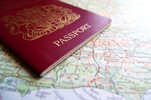Longterm expats in Thailand shocked by the threat of compulsory health insurance

Longterm expats in Thailand shocked by the threat of compulsory health insurance
On the second day of the New Year, an angry expat wrote to an English language newspaper on the subject, asking why those drafting the new law are all insurance company associations. Why, he asked, are an influential group with vested interests deciding on government policy, adding that long-term expats as primary stakeholders should be consulted. He feels the move is political, and made simply to enrich a favoured business sector.
Both in Thailand and in the rest of the world, age inflation results in private health insurance premiums becoming unaffordable for the vast majority of those who either require or actually need it. For the wealthy, it’s not necessary as funds are easily available, but for the rest it’s a choice between not getting treatment, paying hugely inflated prices or having little to live on once premiums are deducted. Expatriates on the so-called ‘retirement visa’ already have to keep 800,000 baht in a separate bank account for at least three months prior to their annual visa renewal, with many simply depositing the amount and leaving it there for safety’s sake, thus foregoing any chance of its earning a reasonable amount of interest.
Many Thai insurance companies refuse to cover those over the age of 60 and for those over 75 there’s even less chance of being able to find an insurer willing to take them on, however healthy they may be. Local expat forums are buzzing with comments by concerned expats who fear they’ll either be unable to be covered or will not be able to afford whatever the insurers themselves decide is the actual premium. These, often long-stay expatriates with Thai wives and families, will not be given another one-year visa extension without insurance, and will therefore be forced to leave Thailand, causing hardship as well as grief for their families.
One frequently given reason for the imposition of compulsory private health insurance is that expats often evade payment for necessary hospital treatment. In reality, stories surface fairly regularly about this problem but, in nine cases out of ten, it’s down to tourists who haven’t bought travel insurance or haven’t read the small print when purchasing it back in the home country. The vast majority of non-insured older expats have ‘slush funds’ in either home country or offshore banks to cover emergencies and have given up on insurance as one single year’s premium could cover a hip replacement or other surgeries common with older retirees.
Thousands of retirees have arranged their finances, formed long-term relationships or carefully planned their retirement strategies, bought homes and helped support local communities. To force them to leave due to a plan aimed at increasing the revenue of Thai insurers is pernicious, to say the least, according to local expat forums.
Related Stories:
- Is Kuwaitization the unintended result of the oil price crash? - July 20, 2020
- Expats in Malaysia still banned from overseas travel - July 17, 2020
- HSBC Asia to cut back on internal expat relocations - July 16, 2020
- Tips on integrating for newly-arrived expats - July 15, 2020
Latest News:
- Tips on a trouble-free relocation as an expat overseas - July 20, 2020
- Expats find peace in the covid-19 refuge of Dahab town - July 20, 2020
- Is Kuwaitization the unintended result of the oil price crash? - July 20, 2020
- Expats unhappy abut changes to Korean points-based visa system - July 17, 2020
- Chiang Mai and Bangkok no longer bargain locations for expats - July 17, 2020
- Expats in Malaysia still banned from overseas travel - July 17, 2020
- Vietnam welcomes expats to its safe, affordable lifestyle - July 16, 2020
- Asian tiger economies reach out to expats in Hong Kong - July 16, 2020
- HSBC Asia to cut back on internal expat relocations - July 16, 2020
- Tips on integrating for newly-arrived expats - July 15, 2020


